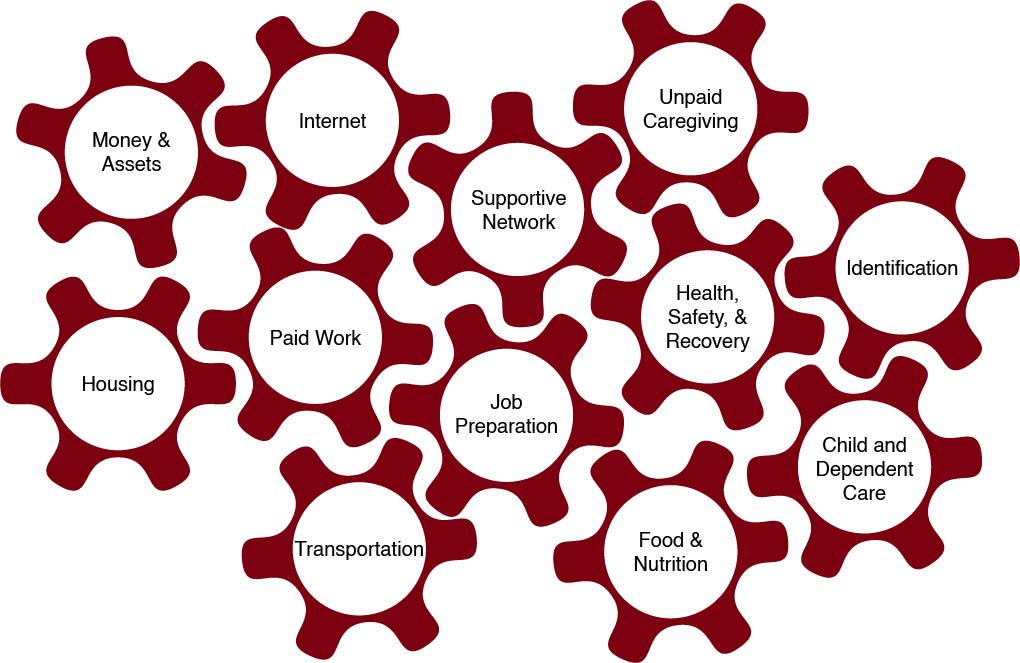Greater Springfield Women’s Economic Security Hub
Purpose
The Women’s Fund of Western Massachusetts’ Key Findings on the Status of Women and Girls in Western MA, 2019 highlighted that women in Hampden County were underemployed and experiencing high rates of poverty. The impact of COVID-19 on women in Greater Springfield has disproportionately affected Black and Hispanic women—women concentrated in low-wage employment that ceased for extended periods or were laid off entirely due to the changing economy and stubborn gendered stereotypes.
The full research report on the Status of Women and Girls in Western MA, 2019 additionally emphasizes the need for change for currently and formerly incarcerated women in this region as “a history of trauma, poverty, and/or substance use is common…and is often the reason (directly or indirectly) for their incarceration.” The report posits that resources like affordable housing, debt relief, financial assistance, access to sober housing—especially for women—quick reunification with children and other family members, and continuity of therapy and recovery are greatly needed.
This 2020 McKinsey report indicates that if we collectively do not act to counter the effects of the ‘shecession,’ then they estimate “global GDP growth could be $1 trillion lower in 2030 than it would be if women’s unemployment simply tracked that of men in each sector.” The report continues, “Conversely, taking action now to advance gender equality could be valuable, adding $13 trillion to global GDP in 2030 compared with the gender-regressive scenario.”






